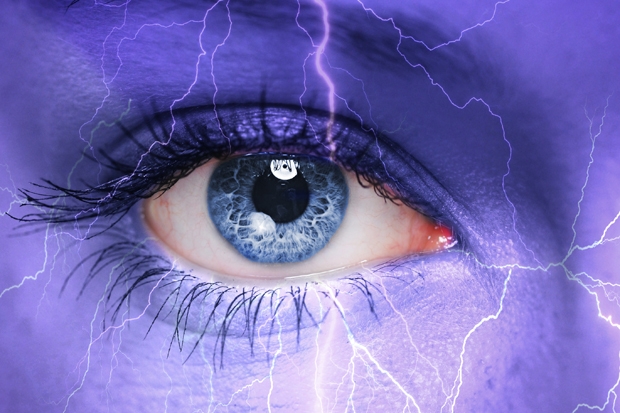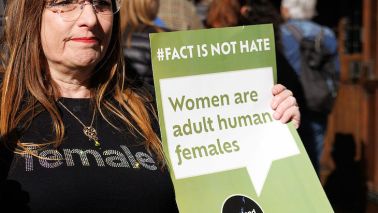Teenage girls all over the world have suddenly developed electro-magnetic powers that can be unleashed on anybody who bugs them. The effect of these electrical jolts ranges from a tingly sensation to scarring, shock, pain, permanent disability, dismemberment and sometimes death. So girls have all the ‘power’ now. Older women soon start zapping too, and thereby move into high office and make millions. It is the end of patriarchy as we know it: almost overnight, women’s tolerance of bullying and sexual harassment sinks to zero, and men start dropping like flies. They now become the world’s cowering victims, servants, slaves and playthings. Men have to adapt swiftly to their new lowly status, and to kinky, often catastrophic, types of sex.
In this viciously topsy-turvy form of female supremacy, it’s men who aren’t allowed to drive cars or own businesses, men who are scared to walk around at night, men who can’t vote. They are the sex objects, reduced to abs, pecs and glutes, and called sluts. They probably multi-task too.
Boys dress as girls, to seem more powerful. Obituaries of men focus on the famous women they’ve influenced. And an American TV anchorwoman is encouraged to wear glasses, to give her gravitas, while her much younger male counterpart, an airhead, is only allowed to report on things like apple-bobbing.
There’s a strenuous attempt to see the idea through its various ramifications (though it takes men an awfully long time to think of wearing more rubber). This is no feminist utopia, nor, despite a few amusing switcheroo moments, much of a satire. Power brings out the worst in Alderman’s women. They don’t pause for a second to suckle babies or make art or try living in harmony with nature or any of that soppy matriarchal jazz.








Comments
Join the debate for just £1 a month
Be part of the conversation with other Spectator readers by getting your first three months for £3.
UNLOCK ACCESS Just £1 a monthAlready a subscriber? Log in